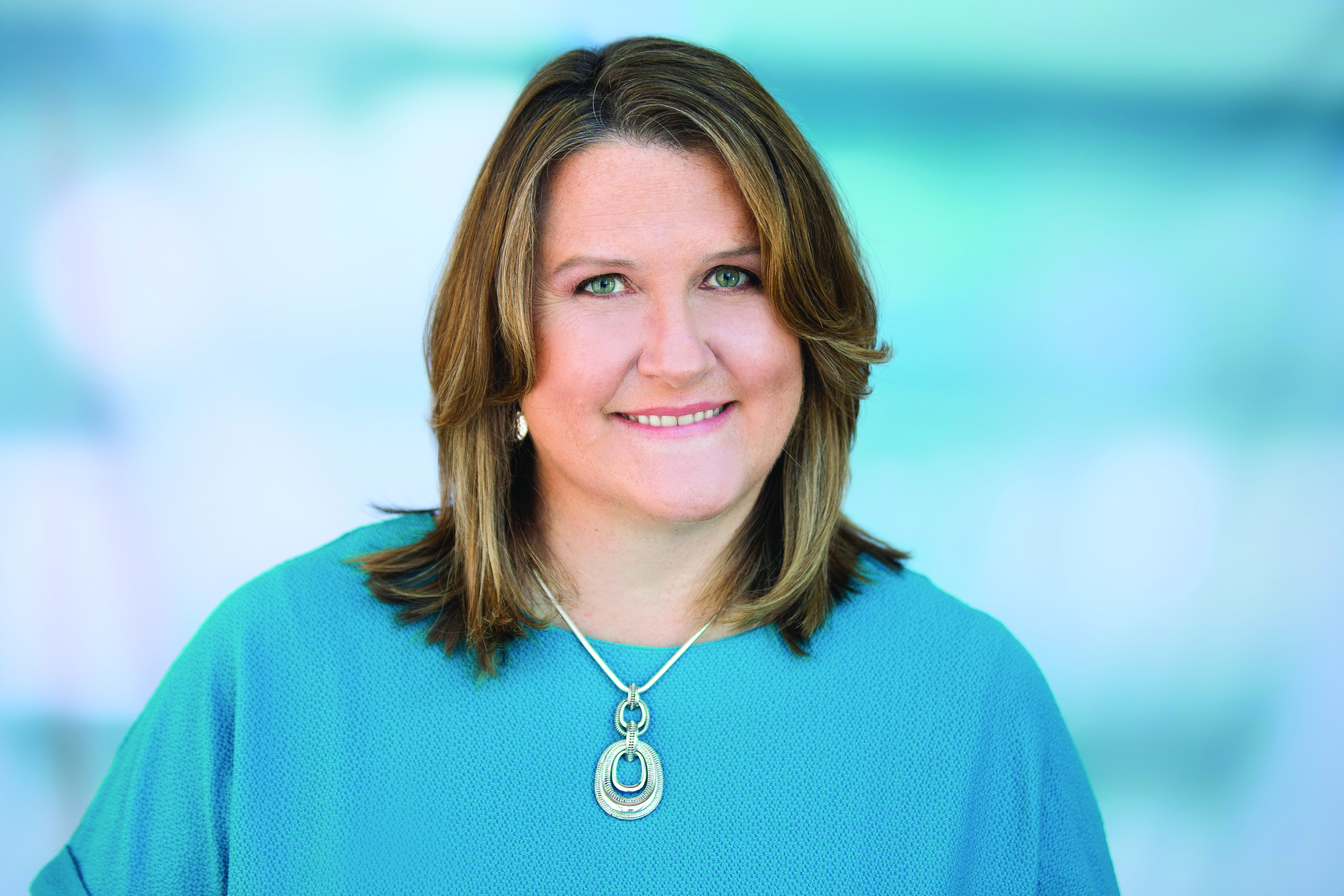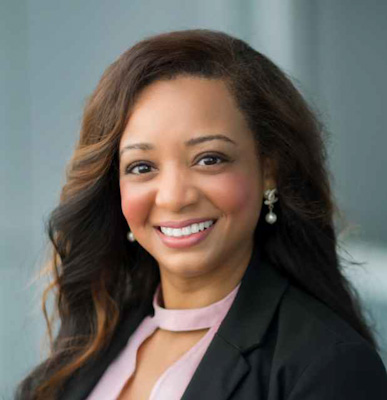10 Questions: In crafting a new career, this Texas contracts attorney created a community

Laura Frederick left her practice to focus on her contracts training business. Photo courtesy of How to Contract.
It’s lunchtime in Las Vegas. There’s a DJ spinning beats, and people in zany costumes are mingling and making plans for karaoke that evening and an upcoming dance-off. They’re laughing, winning prizes and networking, all while earning 13 hours of continuing legal education credit.
Welcome to ContractsCon, an annual three-day conference where more than 1,000 lawyers, legal professionals and thought leaders nerd out about all things contracts.
The brainchild of Laura Frederick, a former in-house lawyer for Tesla, ContractsCon debuted in 2022. Her path from law practice to entrepreneurship began during the pandemic, and she’s since built a global community of contract law professionals via LinkedIn and created How to Contract, a successful online legal education platform.
Frederick also wrote a book, Practical Tips on How to Contract: Techniques and Tactics from an Ex-BigLaw and Ex-Tesla Commercial Contracts Lawyer.
When did you discover this love of contract law? Were you the happiest 1L in contracts class?
I didn’t love law school, and I found contracts class to be pretty boring. The real world of contracts is so different and much more fun. It’s like a game, a puzzle, a challenge. This mindset is why I made ContractsCon to be different. It’s my opportunity to create a training experience that’s fun, but always— always—the information is practical. It’s about what you do every day in your job and how to get better. We have these ridiculous elements like silly hypos, a DJ and costumes. But these elements make it easier to learn and retain information, versus just sitting and reading.
Did you always want to be a lawyer?
No. Growing up, I wanted adventure and excitement and dreamed of being a pilot. I grew up in Rochester, New York, one of seven kids. I went to an all-girls Catholic high school, my grandparents lived within a couple of blocks—the kind of world where you start your life in the community and stay in the community. But I was always the different one. In high school, I was fascinated by life in other countries, and when I was 16, I got it in my head that I would be an exchange student. No one in my community had ever been an exchange student, but my parents said yes. I spent 10 weeks in Spain in the summer between my junior and senior years. It was my first time on a plane, my first time away from home. I went to George Washington University for college because I was focused on global affairs, and I loved it. It was there that I first thought about becoming a lawyer. I never knew any lawyers growing up and thought I wasn’t smart enough. Then I found myself surrounded by college classmates who talked about their plans to go to law school. I thought, “Well, I’m at least as smart as them.” I didn’t go to law school with plans to stay a lawyer. I went to law school thinking it would be my segue to something else.
How did you get into contracts law?
After I graduated from law school, I spent a year in Vancouver, Canada, on a Fulbright grant studying international commercial arbitration. When I went back to Washington, D.C., it was 1994, and I couldn’t find a job doing anything legal. I spent four months working on a hotline for a government auction, surrounded by college students. I had to pay bills. I eventually got a job with a small firm that hired me as a law clerk. They made me a lawyer doing franchise contracts. I spent two more years doing those until 1997. That’s when I switched over to tech transactions and really fell in love with contracts. By 1999, I had a couple of years of tech transaction experience, and I got a call from a BigLaw recruiter. … I joined Morrison Foerster and started in San Francisco for nine months, then they sent me to the Hong Kong and Singapore offices for 2½ years, then back to San Francisco. In 2004, I had two kids and was pregnant with a third. Even though I loved my firm and the work, I needed a more regular schedule. In 2005, I joined a diversified energy company—solar, nuclear, utility, propane—in Allentown, Pennsylvania, and I was there for 5½ years. It was just the kind of job I needed at that point in my life. By 2006, I had four kids under the age of 5 with no twins, and each was born in a different city. This in-house job had regular hours, and the city had an affordable cost of living. I worked on every kind of contract you can imagine, from trading financial derivatives to buying uranium. I even did a contract for naming rights on a stadium.
Tell me how you got to Tesla.
We moved to Southern California in 2010, and I joined a solar startup. I stayed in solar for the next seven years, and then I ended up at a company that was bought out by Tesla, so I was hired on. After a few months of working on solar supply chain work, I took over as lead of their vehiclerelated environmental commodities work. We sold Tesla’s zero-emission vehicle credits, greenhouse gas credits and other similar environmental products. I loved it. But there was something missing. It took me a lot of self-reflection to figure it out, but what I was missing was freedom. I realized the only way I could do this was by working for myself.
Was it scary to go out on your own?
It was so scary. By this time in 2019, I was a single mom and sole income supporting my four kids—two in middle school and two in high school. Their father had no contact, and I didn’t have any family around to help. And I opened my firm without having any clients. I had enough money in the bank to last eight months. I decided if I couldn’t make a go of it and at least cover my monthly expenses after four or five months, I’d close up and find a job. My family and many of my friends thought I was crazy, but what I kept coming back to was this: I’ve always been successful at what I do. I work hard and achieve what I do because I make things happen. I did it at every role I’d had. What facts did I have to suggest that I would fail at this role?
Walk me through your segue to entrepreneurship.
When COVID hit, I had several lawyers working with me, and I thought I needed to focus on marketing and grow the firm’s reputation and brand. That’s what led me to LinkedIn. I had read Jay Harrington’s book about being a thought leader and the importance of sharing what you know. I thought, “Well, I know contracts!” This was August 2020. I had seen a 30-day challenge where you post on LinkedIn every day for 30 days, and I thought I’d try it out. On Aug. 3, I started posting contract tips and little cartoons every day, and within a couple of days, I could see people responding. I noticed people were having all these great conversations in the comments about the nuances of contracts.
What advice were you posting, and how did you think of it?
I thought of all the things I’d want to tell my counterparty in the deals I did, whether that was the buyer or the seller. I focused on what was practical, and I was sharing the tricks of the trade that I’d learned, like don’t put an indemnity clause in your NDA. Initially, it was text only, then I started adding terrible stock photos. I realized that I needed to do better, so I started creating scenes with little stick figures holding a contract. I’m creative, so eventually I started making complex cartoons with ridiculous comments or a scene.
How were you able to move from posting free content on LinkedIn to building your online training company, How to Contract?
It was a challenge. I went through the common entrepreneur experience, trying to find my product. I knew I wanted to offer training, but I didn’t immediately know what that would look like. It started as a membership, then turned into virtual and live events. Now we’re building a large inventory of two-hour courses on things like indemnification and intellectual property provisions, with every course at $195.
Was How to Contract successful from the start?
I’d say I had success signing up lots of people, but it was not profitable. I made little money compared to the amount of work I had to do. I would have made more per hour working at McDonald’s. But luckily, I’d learned a lot about being an entrepreneur from being around that world. When I was in California, I had a friend who was an angel [investor]who taught me a lot about starting businesses. One of the things he always said was if you’re not making money, it’s a hobby.
You stepped away from your practice and are now running your contract training businesses full time. When did you have an “aha!” moment when you felt you’d succeeded as an entrepreneur?
I had it just last month. I was just sick with a terrible sinus infection—I ended up having to get surgery, but it also was the first time in my life I could just be sick and not worry about work. I had a good business strategy, and I had income coming in regardless. When you’re a lawyer, especially working in high-stakes, high-demand ing roles, it can be a nightmare when you are sick or on vacation. It was definitely the silver lining and a reminder how great my life is these days. I have peace. I have freedom.
This story was originally published in the February-March 2024 issue of the ABA Journal under the headline: “Freedom to Contract: In crafting a new career, this Texas attorney created a community.”



